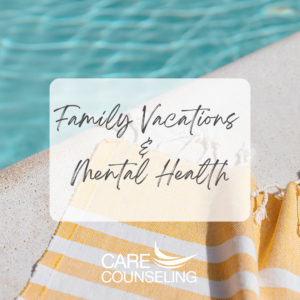Family Vacations and Mental Health

Family vacations are not just about sightseeing and adventure; they provide a much-needed break from our busy lives and offer an opportunity to strengthen family bonds. Beyond the fun and excitement, these vacations play a vital role in promoting mental health for each family member. Whether it’s exploring new places, enjoying quality time together, or facing challenges as a team, family vacations can be transformative experiences that nurture emotional well-being.
- Quality Time and Emotional Connection
In the hustle and bustle of daily life, finding time to bond with family members can be challenging. Family vacations create a unique space where everyone can engage in activities together without distractions. Sharing experiences and creating memories fosters emotional connections and strengthens the family bond. These moments of togetherness promote feelings of love, support, and security, which contribute to improved mental well-being for all family members.
- Stress Reduction and Relaxation
Family vacations offer a much-needed escape from the stressors of daily life. Removing the pressures of work, school, and other responsibilities allow everyone to relax and unwind. Being in a new environment, away from routine obligations, has a positive impact on stress levels, providing a sense of calm and rejuvenation. Engaging in activities like beach walks, nature hikes, or simply lounging by the pool can be therapeutic and reduce anxiety and tension.
- Enhanced Communication and Conflict Resolution
Traveling as a family encourages open communication and healthy conflict resolution. Families encounter new challenges and decisions during vacations, from planning activities to handling unexpected situations. These scenarios offer opportunities for everyone to express their opinions, practice compromise, and collaborate as a team. Learning how to communicate effectively and resolve conflicts constructively can have lasting benefits on family dynamics and individual mental health.
- Boosting Resilience and Adaptability
Traveling to unfamiliar places and navigating unforeseen circumstances require resilience and adaptability. Facing these challenges together as a family can foster a sense of unity and shared strength. The experiences gained during family vacations teach children and adults alike to be more flexible, patient, and resourceful, which are valuable life skills that can enhance mental resilience.
- Break from Screen Time and Digital Distractions
Family vacations often involve limited access to screens and digital devices. This break from constant technology use allows family members to be fully present and engaged with each other and their surroundings. Reduced screen time has been linked to improved sleep, better focus, and decreased feelings of stress and anxiety.
- Encouragement of Exploration and Learning
Vacations provide an opportunity for exploration and learning beyond the confines of a classroom or workplace. Discovering new cultures, traditions, and historical sites can expand knowledge and foster a sense of wonder. Encouraging curiosity and intellectual stimulation during family vacations enhances mental well-being and instills a love for learning.
- Building Lasting Memories and Gratitude
Family vacations create lasting memories that everyone cherishes for years to come. These shared experiences become cherished stories and anecdotes that strengthen the family bond. Additionally, family vacations often allow for moments of reflection and gratitude, as family members appreciate the opportunity to spend quality time together and enjoy life’s blessings.
Family vacations offer much more than mere relaxation and enjoyment; they serve as essential experiences that contribute to better mental health and family dynamics. The quality time, emotional connections, and shared challenges during these trips foster a sense of togetherness and support. By stepping away from the daily grind and embracing new experiences, family members can enhance their communication skills, resilience, and adaptability.
Moreover, family vacations provide a chance to unplug from screens and distractions, allowing for deeper connections with loved ones and the world around us. As we create memories and share experiences, we build lasting bonds that nurture emotional well-being and foster gratitude for the precious moments we spend together.
So, whether it’s a relaxing beach vacation or an adventurous trek through nature, prioritize family vacations as opportunities to nourish your mental health and strengthen the ties that bind us together as a loving and resilient family.



























